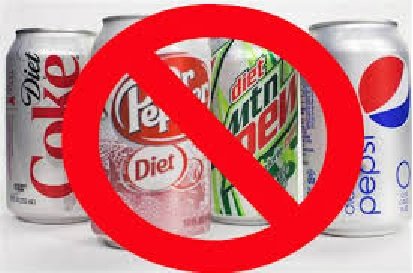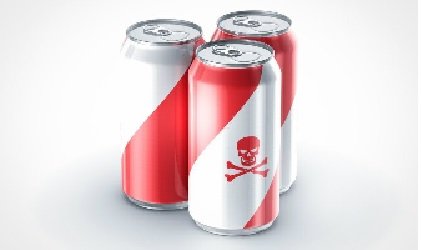Diet drinks on how to gain more weight
Logic would assume that consuming fewer calories would result in weight loss. However, in the case of artificial sweeteners, the paradox is true, it has been shown that they actually cause weight gain. Therefore, diet drinks are not a heathier, calorie free alternative to regular soda type drinks. These chemical sweeteners are considered to make a significant contribution to the obesity epidemic, raging in many industrial nations. In case of artificial sweeteners, it is not only a total misconception that zero calories is beneficial, but their regular intake can have dire consequences.
Nearly a decade ago, studies were already revealing that artificial sweeteners can stimulate the appetite, increase carbohydrate cravings, and stimulate fat storage and weight gain. A study that followed 474 diet soda drinkers for nearly 10 years, found that their waists grew 70 percent more, than the waists of non-diet soda drinkers. In addition, those who drank two or more diet sodas per day had a 500 percent increase in waist size.

Artificial sweeteners such as sucralose and aspartame have zero calories, this does not however fool the body, which on getting a “sweet” taste, assumes calories will follow. In respect of “sweetness satisfaction”, the brain can tell the difference between a real sugar and an artificial one, even if the conscious mind is unable to. When the anticipated calories do not materialise, a distortion is created in the body’s biochemistry, this may then lead to weight gain. Although they trigger more communication with the brain’s pleasure centre, artificial sweeteners provide less actual satisfaction. Hence when artificial sweeteners are consumed, the body craves more, as well as real sugar, because the brain is not satisfied at a cellular level, by the sugar imposter. Some research has suggested that artificial sweeteners may impair the body’s ability to control calories, thus boosting the inclination to over indulge.

Waist size is not just an aesthetic issue, but is a powerful indicator, of visceral fat. This is a dangerous type of fat that gathers around the internal organs, and is strongly linked with type 2 diabetes and heart disease. Waist size is a more powerful predictor of heart risks than Body mass Index, (BMI). Excess weight is not the only damage wrought by artificially sweetened drinks; many other side effects have been attributed to them. Earlier studies showed that cyclamate in combination with saccharin caused bladder cancer in laboratory animals. However, subsequent carcinogenicity studies of those sweeteners have not provided clear evidence of an association with cancer in humans. Anecdotal reports, suggest an association between aspartame consumption and neurological and behavioural reactions. Phenylalanine, (a constituent of aspartame), can be neurotoxic, and effect the synthesis of neuro transmitters, so could conceivably, mediate neurologic effects. Aspartame also promotes the induction of seizures.

upvote for me please? https://steemit.com/news/@bible.com/2sysip